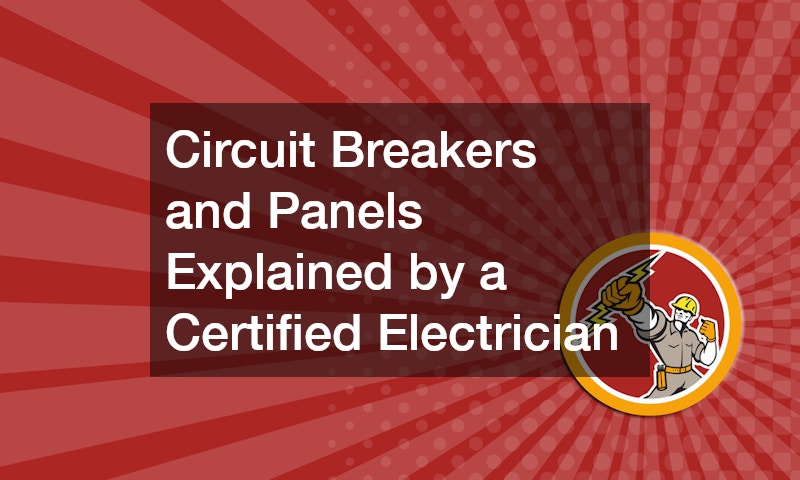Circuit Breakers and Panels Explained by a Certified Electrician

Understanding the electrical system in your home is essential for safety and efficiency. Among the critical components of this system are circuit breakers and panels, which play vital roles in managing electricity. To help demystify these elements, we turned to a certified electrician who shared insights into their functions, types, and maintenance tips. This knowledge is crucial for homeowners looking to enhance their understanding of their electrical systems.
At its core, the circuit breaker is a safety device designed to prevent electrical overloads and short circuits. When the electrical flow exceeds safe levels, the circuit breaker automatically interrupts the flow of electricity, protecting both your appliances and your home from potential fire hazards. Circuit breakers are typically housed in an electrical panel, also known as a breaker box. This panel serves as the central hub for distributing electricity throughout your home, making it a crucial part of your electrical system.
There are two main types of circuit breakers: standard and GFCI (Ground Fault Circuit Interrupter). Standard circuit breakers protect against overloads and short circuits, while GFCI breakers are specifically designed to prevent electrical shocks by monitoring the current flowing through the circuit. If they detect an imbalance, indicating that electricity is escaping to the ground, they will trip and cut off the power. A certified electrician often recommends installing GFCI breakers in areas where water is present, such as kitchens, bathrooms, and outdoor spaces, to enhance safety.
In addition to understanding the types of circuit breakers, it’s important to recognize the various configurations of electrical panels. The most common types are main breaker panels, subpanels, and combination panels. A main breaker panel serves as the primary distribution point for electricity in your home, containing the main circuit breaker that controls power to the entire house. Subpanels are smaller and are used to manage electrical loads in specific areas of the home, while combination panels incorporate both the main breaker and subpanel functions. A certified electrician can help you determine the best panel configuration for your needs, especially if you are considering home renovations or electrical upgrades.
When it comes to maintaining your circuit breakers and panels, regular inspections are essential. A certified electrician recommends checking the panel for any signs of wear, such as rust or corrosion, which can indicate moisture problems. Additionally, pay attention to any tripped breakers or unusual noises coming from the panel, such as buzzing or crackling sounds. These could signal underlying issues that require professional attention. Scheduling regular maintenance checks can help identify problems before they escalate, ensuring your electrical system operates safely and efficiently.
Another crucial aspect to consider is the load capacity of your circuit breakers and panels. Each breaker is rated for a specific amperage, which determines how much electrical current it can handle. If your home is experiencing frequent tripped breakers, it may indicate that your electrical system is overloaded. This can happen if you add new appliances or devices without considering the overall load. A certified electrician can evaluate your system’s capacity and recommend upgrades if necessary, such as installing higher-rated breakers or adding new circuits.
For homeowners who are considering DIY electrical work, it’s vital to understand the risks associated with working on circuit breakers and panels. While some tasks, like changing light fixtures, may seem straightforward, working with the electrical panel requires a level of expertise and knowledge of safety protocols. A certified electrician can provide peace of mind, ensuring that any electrical work is done safely and in compliance with local codes. Attempting electrical repairs without proper training can lead to serious injury or damage to your home.
In conclusion, understanding circuit breakers and panels is essential for any homeowner looking to manage their electrical system effectively. By knowing the different types of circuit breakers, the configurations of electrical panels, and the importance of regular maintenance, you can enhance both the safety and efficiency of your home’s electrical system. A certified electrician is an invaluable resource for addressing any questions or concerns you may have, ensuring that your electrical setup meets your needs while maintaining safety standards. Investing time in understanding these components will empower you to make informed decisions about your home’s electrical system and its upkeep.
.
